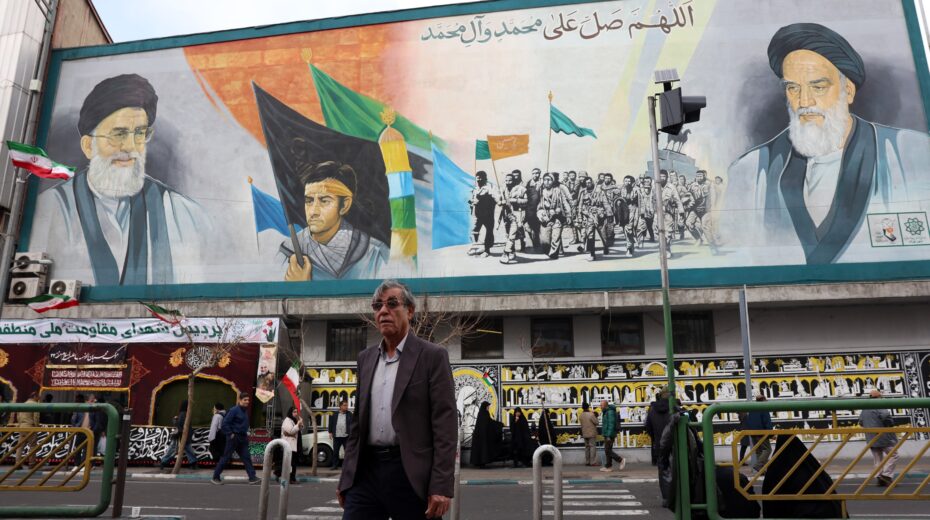For the first time, senior EU officials in charge of aid to the Palestinian sector admit that Palestinian textbooks have “very deeply problematic content that remains of serious concern” including antisemitism, incitement to violence and the glorification of acts of terrorism.
This has been stated in three public debates since the beginning of the month in the European Parliament, concerning the contents of the new Palestinian textbooks. This happened before the convening of the Budget Committee at the end of September, which will discuss the freezing of funding for Palestinian education. Discussions on the issue took place in the Committee on Budgetary Control, Foreign Relations and Education of the European Parliament. The discussions followed the publication of the findings of a report commissioned by the European Union. The report examined whether there was incitement to hatred, violence and non-compliance with UNESCO’s international educational standards, in Palestinian books. The report was a result of a three-year campaign and comprehensive, current research done by the policy institute IMPACT-se, which was presented to senior EU officials.
The EU report confirmed the findings of the IMPACT-se Institute. The report confirmed the presence of antisemitic content that encourages violence against civilians, glorifies acts of terrorism and terrorists, and encourages jihad and death. The report also confirmed that Palestinian teaching materials are pushing for the de-legitimization of Israel and its deletion from maps.
The Director-General of the European Union, which commissioned the study and oversees all assistance to the Palestinian education sector, is Maciej Popowski, who confirmed in the joint discussion:
“I was explicitly asked… to speak to the Palestinian Prime Minister, which I did right after the publication [of the EU report]. I wrote a letter to him also asking to take immediate action and also stop using books where questionable content has been identified and to follow up as a matter of utmost priority for the entire Commission… we have no tolerance for incitement to hatred and violence as means to achieve political goals, antisemitism in all its forms, and these principles are non-negotiable for this commission.”
In a discussion of the European Parliament’s antisemitism working group, the person responsible for the Middle East under the auspices of the European Commission is Director General Henrike Trautmann, who stated that the textbooks of the Palestinian Authority are intolerable in their current form:
“It is very clear that the study does reveal the existence of very deeply problematic content that remains of serious concern […] Changes in the curriculum are essential […]with the aim to ensure a further curriculum reform that addressed the highly problematic issues identified in the shortest possible time frame… Full compliance of all educational material with UNESCO standards of peace tolerance coexistence and non-violence must be ensured as must any reference of antisemitic nature need to be addressed and taken out.”
The head of the United Nations agency for Palestine refugees (UNRWA), Philip Lazzarini, was also invited to a hearing in the EU Parliament’s Foreign Affairs Committee. He was forced to recognize in a public and precedent-setting manner, that the Palestinian educational curriculum in use in his agency’s schools includes antisemitism, incitement to violence, and glorification of acts of terror. Following a flood of questions that challenged him on the subject from dozens of MPs, he responded:
“We as UNRWA have identified three categories of problems in the textbooks when it comes to being in line with UN value[s], which is age appropriateness, gender perception, and then the issues related to incitement to violence, discrimination, and so on. Yes, as well as antisemitism, intolerance, absolutely…”
Oliver Verhali, is the High Commissioner of the European Union responsible for all relations with the countries bordering the Union, and his administration is entrusted with the aid money to the Palestinians. He called for reconsidering aid to Palestinian education, following the findings of the Palestinian textbook report.
In response to a query on the subject from the Deputy Speaker of the European Parliament, Nicola Beer, Verhali added that the report is being taken seriously and that “the Commission reserves the right to take appropriate measures as necessary in this regard.”
Palestinian Prime Minister Mohammed Shtayyeh is rejecting making any changes to textbooks. In response to the findings of the EU report, he said, “The Palestinian curriculum cannot be judged by standards far removed from [the Palestinian] people’s history and culture.” He further said that if the aid to the Palestinian Authority will become conditional, based on removing and altering content, the PA will prefer to fund the printing of educational material through its income from taxes on water, electricity and communications.
Director of the IMPACT-se Institute Marcus Sheff:
“These statements by so many senior EU officials in charge of Palestinian education aid, that school curricula cannot continue to incite children to hatred and violence, are particularly relevant; and come just weeks before the Budget Committee is due to discuss freezing funding for the Palestinian Authority until changes are made… There is a real sense of joint purpose in the entire political spectrum in Brussels that the incitement in the Palestinian textbook should stop immediately and that EU institutions will take a leading role in this process.”














